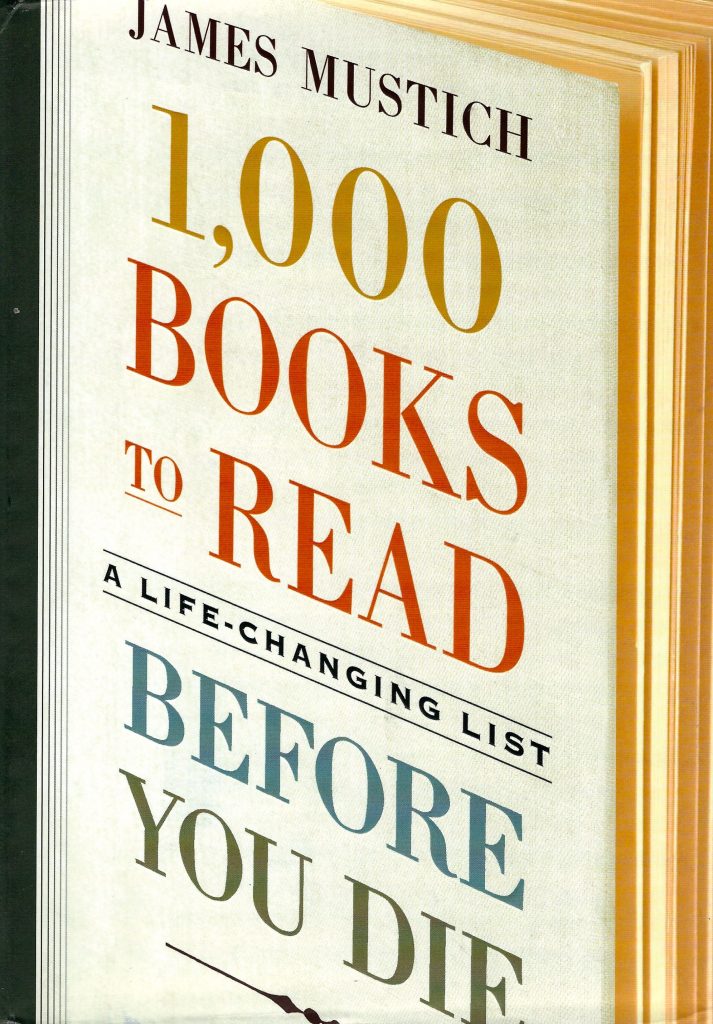I have given away four copies of James Mustich’s chef d’oeuvre, 1,000 Books to Read before You Die: A Life-Changing List, before I bought and kept one for myself. I became acquainted with Mr. Mustich in the 1980s when I subscribed to his catalogue, A Common Reader. His succinct and insightful responses to the books over these 882 pages continually tempt me to add yet another title to my ever out -of-control lists. I often spend ten minutes in the early morning opening to a random page, then reading a few pages before and after the page I landed on. I am currently facilitating my third reading group of Dostoevsky’s The Brothers Karamazov with 13 friends; next Tuesday we discuss Book 12, the last one, before the tear-inducing epilogue (page 232). My friend Cami, a participant in the Karamazov group and now nearing the end of her second reading of the novel, recently reminded me of another long book to read with a community, In Search of Lost Time by Marcel Proust. I didn’t try to organize a group, but I got busy reading ten pages a day of William C. Carter’s refined and annotated treatment of C. K. Scott Moncrieff’s classic translation; I am almost done with Swann’s Way (page 644). Last evening in a writing class based on the 1971 film Harold and Maude, I shared with my six companions a poem by Polish poet Wislawa Szymborska (page 769). This summer I’ve been immersing myself in the classic Yiddish authors Mendele, Sholem Aleichem, and Peretz, none of them included, oy vey, although Sholem Aleichem did get a mention; still Mustich highlights Isaac Bashevis Singer’s collected short stories (page 725) and Irving Howe’s massive World of Our Fathers: The Journey of East European Jews to America and the Life They Found and Made (page 391), both of which I’ve lately and happily dipped into. You will likely express surprise that some of your favorites are not included (where is The Gospel of Sri Ramakrishna? I wondered). No matter. Bibliophiles ought to be forever grateful to the author for creating a treasure that elicits tingles as you browse with delight over the course of a hopefully long lifetime (Hawley-Cooke, a bookstore I haunted long ago in Louisville, sold black t-shirts with the message, “So many books, so little time”). Across these many pages, authors, and books, Mustich exemplifies a line from Allen Ginsberg (page 315): “Appreciation is the sacrament.”
